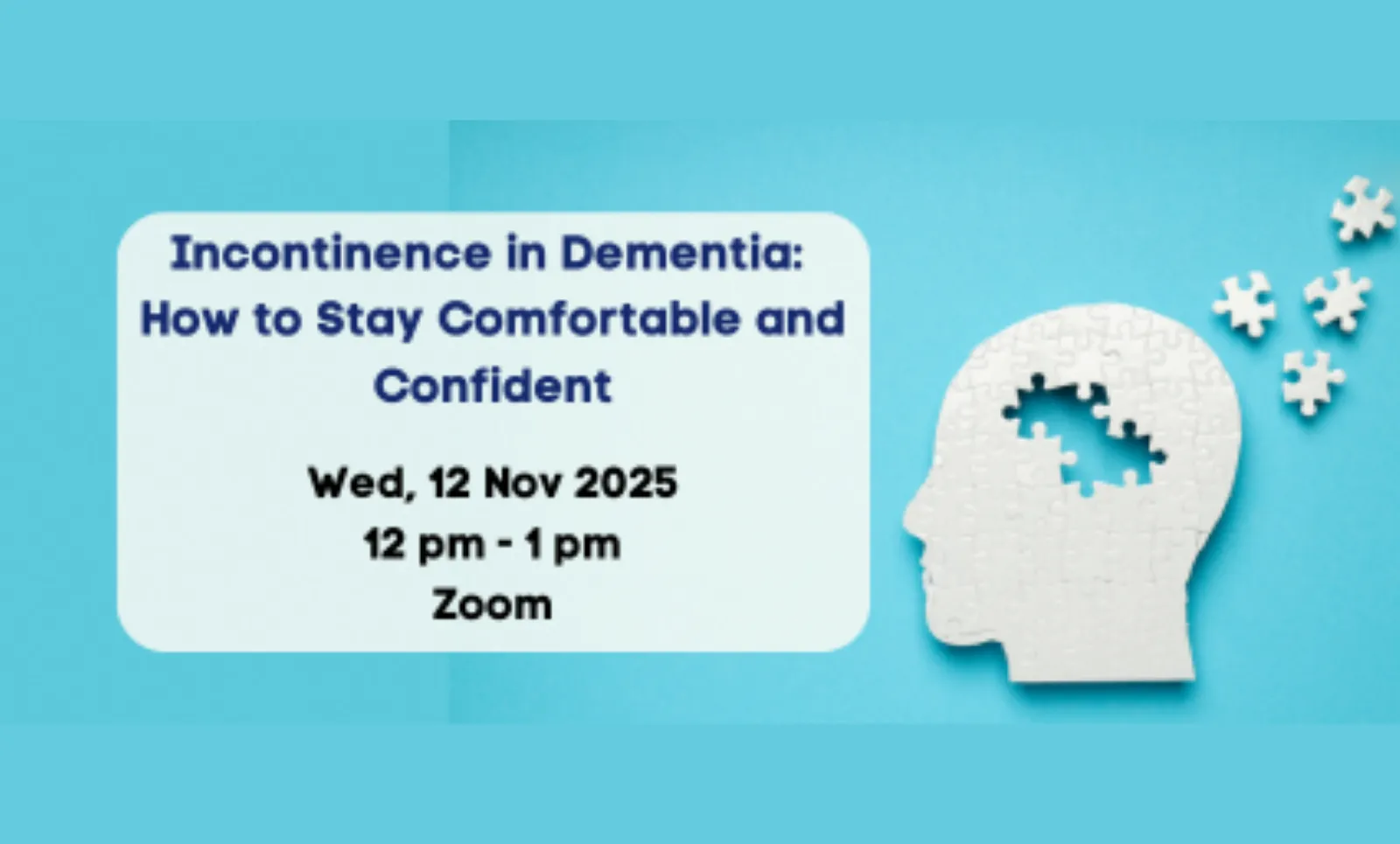Join us in this talk, to learn why incontinence happens in dementia, and discuss practical steps that can make a difference, from simple home strategies to ways of preserving comfort, confidence and dignity.
Date: 12 November 2025 (Wednesday)
Time: 12.00pm – 1.00pm
Online (Zoom)
Register online. Session is free of charge
By the end of the session, participants will:
• Understand the common causes of urinary incontinence in dementia
• Understand the impact of urinary incontinence in persons with dementia
• Learn practical tips and strategies that can be applied at home
Disclaimer: All content and advice shared during the programme are for informational purposes only. They are not intended to be a substitute for professional medical advice, diagnosis, or treatment.
Urinary incontinence is a common but often overlooked challenge in people living with dementia. Many persons living with dementia and their families find it distressing or difficult to manage, yet it is a problem that can be understood and supported with the right knowledge and strategies.
This programme is presented in collaboration with SingHealth.
Dr Beatrix Wong is a Consultant Geriatrician at Changi General Hospital and Co-Lead for Geriatric Medicine at Eastern General Hospital. She has a keen interest in dementia care, falls, fractures, frailty, and perioperative care. She previously led award-winning quality improvement projects in OrthoGeriatrics which have significantly impacted patient outcomes and hospital systems. She is committed to improving the quality of life for seniors, through holistic, compassionate, and preventive care, and works closely with families and caregivers to support their journeys with confidence.
Persons living with dementia and their caregivers




